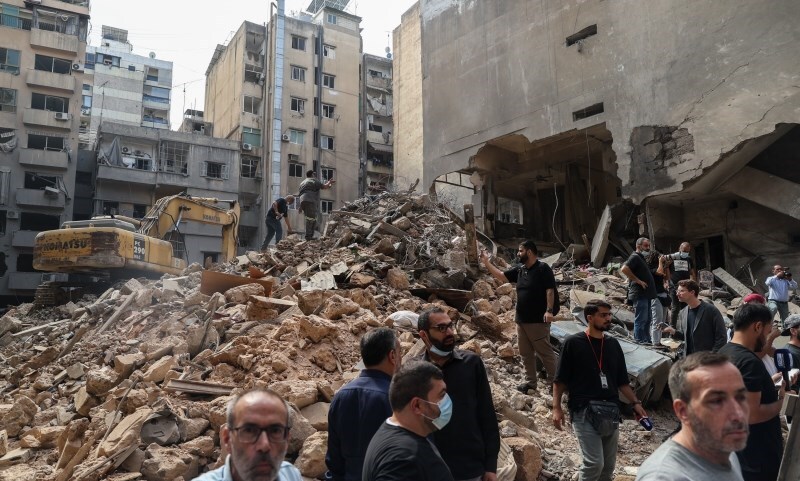A ceasefire meant to end 14 months of the deadliest war in decades between Israel and Hezbollah began at 0400 on 27 November.
The agreement requires Hezbollah and Israel to withdraw their forces and weapons from the area between the Blue Line – the unofficial border between Lebanon and Israel – and the Litani river, about 30 kilometres to the north, in the next 60 days.
The United States and France who both brokered the deal will join Unifil (the United Nations Interim Force in Lebanon), Lebanon and Israel in monitoring violations of the agreement.
The ceasefire is an agreement between Israel, Lebanon and the mediating countries but not Hezbollah, which the U.S. has designated a terrorist group – a top Lebanese lawmaker was acting as a liaison with Hezbollah.
Iran has welcomed the deal and was reported by The New York Times on November 15 to have signalled pre-approval of a ceasefire in meetings.
Early reports in the first hours of the ceasefire said thousands of displaced Lebanese began to return to their homes.
The fighting has killed thousands in Lebanon and an estimated 100 Israeli civilians and soldiers, displaced about one million people in Lebanon and about 60,000 people in Israel, and destroyed homes and farmland.
Israel launched a major offensive on Lebanon with troops and bombing in September after months of trading missile and rocket fire with Hezbollah following the Hamas attack in southern Israel on 7 October 2023.
Israel assassinated Hezbollah’s longtime leader Hassan Nasrallah and killed other key leaders, damaged Hezbollah’s infrastructure, and destroyed some of its massive weapons stockpiles.
But it did not destroy Hezbollah, its troops appear to have advanced only a few miles into southern Lebanon, and Hezbollah continued to fire missiles and rockets into Israel.
The agreement largely echoes UN Security Council resolution 1701, which 18 years ago ended the 2006 war between Israel and Hezbollah and required areas south of the Litani river to be free of any armed personnel or weapons other than those of the Lebanese state and the Unifil peacekeeping force.
U.S. President Joe Biden told reporters that the agreement was “designed to be a permanent ceasefire”.
War in Gaza and arrest warrant for Benjamin Netanyahu
The ceasefire does not apply to Gaza where 44,000 people have been killed and a few days before, the International Criminal Court (ICC) issued arrest warrants for Israel’s prime minister Benjamin Netanyahu and former defence minister Yoav Gallant, as well as the military commander of Hamas, Mohammed Deif of Hamas, although Israel has said he was killed in an air strike in Gaza in July.
The ICC judges said on November 21 there were “reasonable grounds” the three men bore “criminal responsibility” for alleged war crimes and crimes against humanity during the war between Israel and Hamas. Both Israel and Hamas have rejected the allegations.
Prime Minister Netanyahu condemned the ICC’s decision as “antisemitic”, while Hamas said the warrants for Netanyahu and Gallant had set an “important historical precedent”.
Signatories to the ICC – including the UK – are obliged to enforce the warrant.
But as the Hezbollah ceasefire took effect in Lebanon France announced that Netanyahu was immune from arrest because Israel is not a signatory to the ICC.
UK Prime Minister Sir Keir Starmer’s official spokesman said: “When it comes to the ICC judgment, as we’ve said previously, we’re not going to comment on specific cases, but we have a domestic legal process in the UK that follows the ICC Act of 2001 that includes various considerations as part of that process, including immunities.”
The White House said the US rejected the ICC decision.
Ceasefire
Text of ceasefire deal
Ceasefire updates
World reaction to ceasefire
Lebanese return to their homes
What to know about the ceasefire
Iran welcomes ceasefire – The Times of Israel
Why now?-The Conversation
ICC issues arrest warrants
France signals immunity for Netanyahu
UK and the ICC arrest warrant








